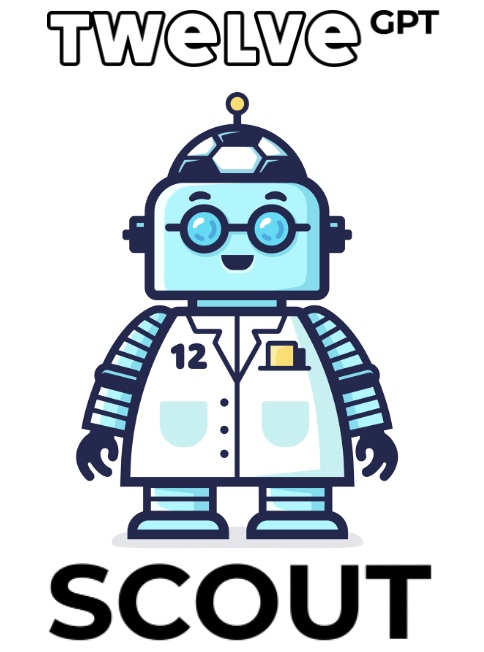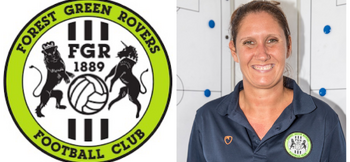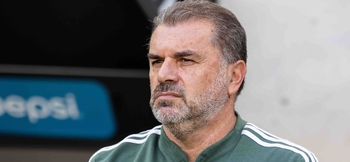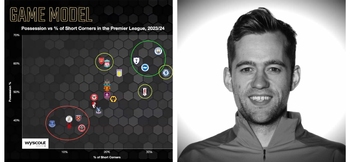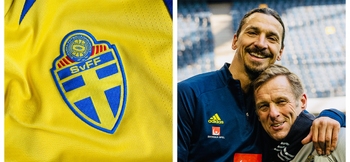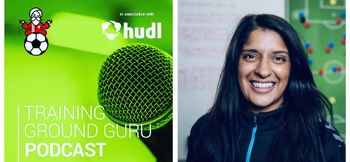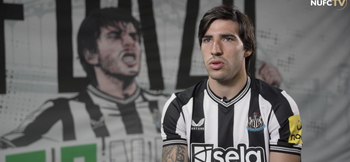TGG Podcast #19: Davide Ancelotti - Everton’s new era
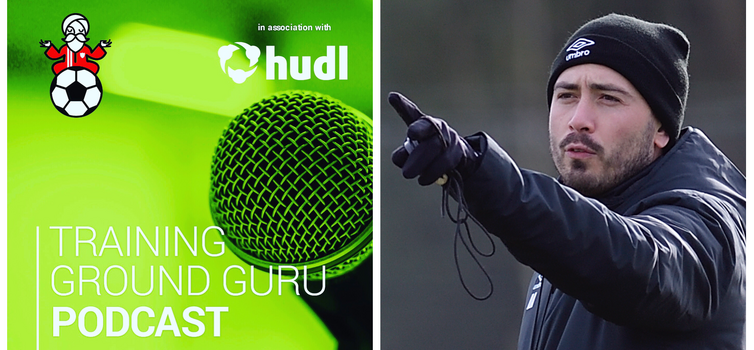
Written by Simon Austin — November 1, 2020
EVERTON assistant Davide Ancelotti was the guest on episode #19 of the TGG Podcast, in association with Hudl.
The 31-year-old talked about growing up with a famous father, gave insights into his role, explained why Dominic Calvert-Lewin was "the best striker we could have" and opened up about his own managerial ambitions.
You can listen to the podcast via the player below, and read what Davide said after that.
Growing up in the dressing room
When my father was a player at AC Milan, I used to go there as a young kid. I grew up in a dressing room. Then he became a manager and I started to watch football from the point of view of the manager.
I tried to record it in my mind, to make sure I remember this kind of example and remember it well, because then I can explain it to these young players we have now.
I have a lot of stories to tell them and I think it’s really important to create a good environment and learning process. If I have 100 stories to tell, I think my father has 1,000. It’s great when my father starts to tell stories, it is a great moment for everyone.
It is really important to create the good environment with storytelling. The players are really interested. For a young player that starts hearing about these kinds of players, it is always really interesting. They listen and it is a good example.
Proving you’re more than just the manager’s son
I am not stupid, so I know that doing this job is difficult for me. You have always the shadows and doubts from the others - that you are there because you are his son.
The first day I come in I am the son of Carlo, I cannot change that. It’s something that sometimes hurts me, but I have to live with it and focus on my job and see where my job can bring me. It depends on the quality I show every day.
I can only change that by working every day and trying to convince everyone I deserve my job. I just try to focus on that.
I am just focused on what I am doing and trying to improve and learn every day and be better every day for my players.
First impressions of Everton
They welcomed us really well from the beginning. We felt like we had worked here for a long time. The impression of the team was good, because we knew we had players with quality.
The season (we arrived) was not so good, the team was not doing well. For us it had been the same one month before at Napoli, because we had the same problem. We had a bad season and that is something that can happen.
But if you have quality you don’t have to find who’s guilty. The quality of the team was good and they just needed some confidence.
What’s changed this season?
The main thing compared to last season is we improved the quality of the training, the competitiveness. There are more challenges and this is really helpful for the players.
The drills, the principles we worked from are the same. What increased is the challenge. They want to win every game; in every drill they have something to compete for.
I think it is really important for a training session to always have something to compete for. If you have this sort of competition in your team then the players can help each other to improve.
If one player trains well he is improving not only himself, but also all the others and this is what we think is really important.
The players who were with us last season increased their level because of that. This was the reason for this big start we did and why, for the moment, we are top of the league.
We have a great captain (Seamus Coleman) who is really helpful for us and helps to keep this spirit. Unfortunately, now he is injured but we hope to have him back soon.
We knew we were going to lose a game, because we play in a really difficult league where the teams are all prepared. They all have good managers, a good philosophy of play, a good identity.
Southampton is one of these teams and they were better than us, they deserved to win (2-0, on October 25th). You have to accept that and analyse what you did wrong and every week you have the opportunity to come back, to react, and this is what we want to do for the next game.
Overall it has been positive and this result won’t effect what we are doing.
Dominic Calvert-Lewin: The best striker we could have
Honestly, once we come for the first game - when Duncan (Ferguson) was on the bench against Arsenal (on December 21st 2019) - Calvert-Lewin played as a number nine and we have always considered him a number nine from he beginning.
In the 4-4-2, in the 4-3-3, his duties are the same - he has to play on the last line, be ready to attack the depth and he is really, really good to do that. For what we want, he is the best striker we could have.
He is a real finisher, he is patient, he doesn’t need to drop a lot to touch the ball. All he wants to do is score and he is focused to be in the box when needed.
If you have spaces to attack, he is quick and can attack the depth; if they are defending with the low block, you have spaces on the wings and can cross because he is a good header.
The manager has had, in his career, this kind of striker with these characteristics and style of play and they always did well. I think of Filippo Inzaghi, David Trezeguet, (Didier) Drogba, Cristiano Ronaldo - all players that like to play on the last line ready to score.
Dominic was really confident when he didn’t score last season, the last nine games. He worked really hard for the team and was really confident in training and that surprised me in his mentality.
He has a really, really professional mentality and just worked, repetition, in training. It is what he needed - confidence and training repetition. I think Duncan is really important for him, because he works with him and gives him a lot of advice.
I think this is really important to develop the quality of a single player if you are like Duncan, a legend of the club, a really good striker in the box, a good header. For Dominic it is really important advice Duncan can give him.
It is different for me, because I didn’t have experience as a player. I played football, but not at this level. So I cannot tell Dominic what he has to do in this situation.
I can explain the strategy of the game, but I think to develop the individual drills of the player it is really important to have someone who has the experience and can give the good advice.
Against the low block we have a good option with Richarlison coming from the wing to attack the far post. He (Calvert-Lewin) is a really complete striker and Richarlison is too.
He (Richarlison) can also play on the wing, is good one against one, is really generous, can defend. We were really lucky to find these two players when we arrived.
James Rodriguez: Technically, he's top of the world
I had no doubt (he would be a success) because James is a different player, he increases the level of the team, because technically he is top of the world.
Sometimes here you have teams who press him a lot, who start to know what he does and they will try to focus on him, because the first game they didn’t expect, I think the other teams were surprised to see this kind of player.
Now they are worried and he has to be patient during the game. If, at the start of the game, he doesn’t find the space he has to be patient, but he is an experienced player and will be able to manage this kind of pressure.
In the game you have a lot of things that happen that you cannot record. I know that in England it’s really important, the high-sprint distance, you look a lot on it.
Analysing the game you also have to assess also what happened in a small speed, the accelerations, the decelerations, the things that are difficult to record with GPS.
The physical data are just a consequence in a game, it depends the style of play, what the manager asks you, the strategy of the game, can affect a lot the data.
You have to take the physical data always assessing what happened on the pitch on a tactical point of view. Of course, you have players like James, sprint distance 10 metres, but everyone can play football, because football is played with the head more than the legs sometimes.
If you have 10 players like James, can be difficult, you need a little bit… (Abdoulaye) Doucoure for example, has really really good physical data.
Duties of the assistant manager
My duty is to organise the training sessions, to make sure everything goes well, to prepare the set pieces, to help the manager prepare the strategy of the game.
Duncan works more individually, on the drills and the individual qualities of the players and above all the strikers.
We go week by week, we organise the programme together. Day by day we have a meeting with the medical staff to assess the players who are available for the session.
We are both involved in organising the week. I am more specialised on some drills on the pitch and he (Ferguson) makes sure that the players have their own individual drills on the pitch.
We split groups. I take one, maybe to work on one aspect of the game, like build up from the back with the goalkeeper, and he takes the other group, he works on passing drills, possessions. The manager is more observing during a normal training session.
He (Carlo Ancelotti) can come in the session and stop it and say what he thinks to correct sometimes, but he gives a lot of responsibility to us. He only manages the tactical session when we play 11 v 11 on a full pitch two days before the game. He is the main man.
My goal is to give him a lot of doubts, to give my opinion. At the end he is the one that makes the decision. I am not here to say, 'yes, yes, yes,' I am here as every assistant coach, I have the confidence - me more than others - to say, 'no, I disagree with you.'
He wants me to do it. If a manager has alongside him all people that says 'yes, yes, yes,' I don’t think it’s a good thing. I think he needs a staff, as we are, to say when we disagree.
I think the staff of a manager is the people he trusts. In this case, is his son, but also the second of other managers is a man that he trusts what he says. He is an assistant that has the confidence to say to the manager everything.
As a manager, you have to make sure your staff is like this. If your staff is only agreeing with you, there is something wrong.
At the end there is a lot of respect and the final decision is always his, but in the discussion we are all involved. Not only me, all the people. It is not always like this. This is the kind of manager who likes to listen to all the staff.
We have an analysis department, they are really good. We have all the sessions recorded and can go through them afterwards to analyse. We can also work on live. I can have, if I want during the tactical session, an iPad and watch after the drill and correct already on the pitch if I see something.
We don’t have a big screen near to the pitch, we just work with the iPad, but I think it is interesting. I know Bielsa has the Bielsa machine - it is interesting to do something (like that) live. I also know that (Julian) Nagelsmann in Hoffenheim had a big big screen and I think it is a good idea, but we are happy with what we have here at the club because we have everything we need.
Speaking five languages
If you are there every day, you need to speak the language of the country, it is really important. Also, if you have players from different countries in the dressing room, to be direct with the communication is really important.
If you have to give emotional advice, if you do it in his language it is better.
Here we have German (Cenk Tosun), English, French, Spanish, with the Colombian guys and Andre Gomes, so you can practice all the languages in the dressing room. Now it is like this in every dressing room, you have all the languages.
Having flexible playing principles
We have principles, we have a philosophy, we have a style of play. From the first day we tried to teach them and make sure they agreed, so they make the principles for themselves, so they are convinced.
Every manager has his own philosophy and style. We try every day in training to make sure they do it with confidence and we are satisfied at the moment, because they understand.
We changed the system this year, but the system is not so important, it is just a number. What is important for us is principles, to recognise the spaces, recognise what we are doing, in which situation we are; if we in a lower build-up with the ball, a higher build-up.
Recognising depends always on the opponent. You cannot decide, ‘I will play 80 minutes in the opponent’s half,’ because you never know if they are going to stay back, if they are going to press. And if they press, recognising what we have to do.
You have to recognise the situation and what to do. Without the ball, it is the same. We have to know how to press high, how to play the transitions, what to do when we are back. You can change the system depending on the players you have.
We work a lot during the week assessing what we think the opponent is going to do in the game. On the pitch you have two teams and you need to try to understand what they are doing to do, because what they are going to do affects what you are going to do.
Of course you need to have strong principles but the opponent can affect the kind of principles you are going to use.
Ending the turnover of backroom staff
It is not possible that the club that changes the manager changes 12 people every time, because you cannot increase your level, you cannot improve.
This is something that I think has to stop in this world. If you go to American sports, that is I think the best example we can have, and it is not like this.
The manager is there to prepare the games and make sure the strategy is good and that is it. Maybe it is extreme, what they do in American sports, but here it is extreme from the other side.
We have to make sure everyone does his job, that the positions are really clear, everyone knows what to do, and then there is the personal part, which is something you’re born with, it is the human being.
Ambitions of becoming a manager
I have to finish my Pro Licence. I have the A Licence and in Italy I can ask to do the Pro Licence once I am 32. I am 31 now. I did the A Licence in Germany, so if I want I can do the Pro Licence in Germany, but I would like to do it in Italy. So I wait until I am 32, if they accept me.
I will be 32 next year but I will have 10 years’ experience as a coach. In Germany, you can have the first licence at 16 to coach the kids, which I think is a good thing.

You see a lot of young managers now in Germany - Nagelsmann is the most famous example - but not in Italy.
As a character, I am really similar to my father (pictured above). He doesn’t like to fight, he likes to have a friendly relationship with everyone. Mourinho for example has a different character, Klopp has a different character.
If you are honest - with the players, with all the staff and with yourself - I think it is the best quality you can have as a manager. You don’t have to try to act.
I am really happy with the role I have here as assistant and will keep learning every day from this experience and try to improve and be ready for the moment to go to be a manager alone. Of course it is something I will do.
The goal for the club and team is to reach Europe, to improve on what we did last season. The day-by-day goal is try to keep the spirit and not be influenced by results, which is the most difficult thing. And to try to keep improving and working on the principles and style of play.
The club wants to do something with the long term, so I am confident.
And we can’t wait for the fans to be back at the stadium. I think it will be weird at first, because now we are used to playing like this. At the beginning it was strange and we say football is not the same; now we are starting to adapt to this new environment in the stadium. Once the fans will be back it be really noisy, really strange and really nice.
Our goalkeeper coach Alan Kelly also works with the (Republic of Ireland) national team and told me that in Finland recently they had 10,000 people in the stadium and it was like 100,000 for him, because we are getting used to the silence now.







